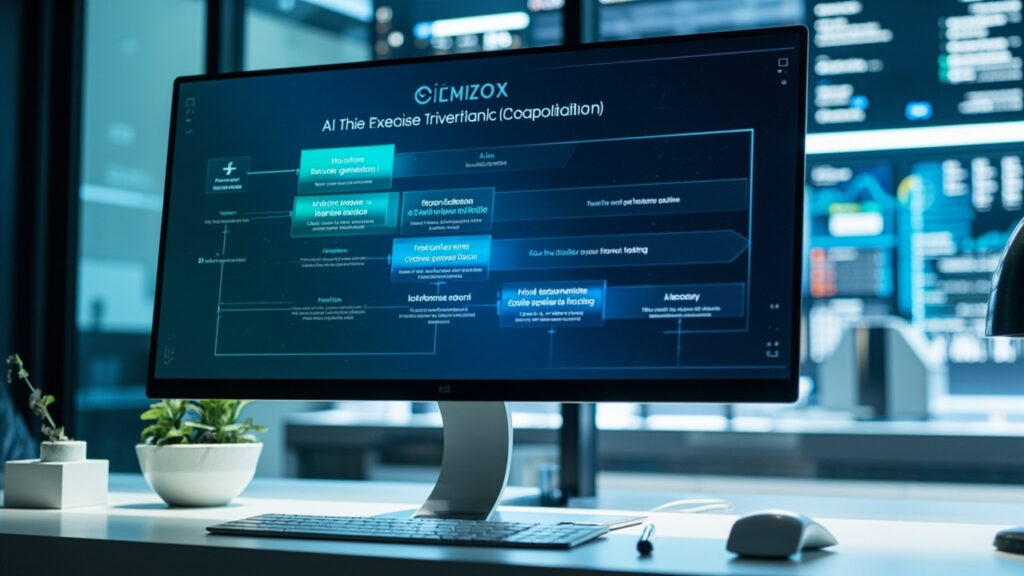In the rapidly evolving landscape of software development, the stakes for maintaining high-quality applications have never been higher. As businesses continue to integrate more complex and sophisticated technology into their operations, the pressure on software testing teams to keep pace is immense. Traditional testing methods, while once sufficient, now falter under the demands of modern development cycles and technologies. This blog post explores the multifaceted world of software testing, the critical challenges it faces today, and how cutting-edge solutions like AI-powered tools are transforming the field.
Software testing is more than just a necessary step in software development; it is a crucial process that ensures applications perform as intended and are free of defects that could cause financial and reputational damage. However, as software systems grow in complexity and the pace of development accelerates, the traditional approaches to software testing are becoming increasingly insufficient. This post will delve into these challenges, explore the integration of new technologies in testing practices, and discuss how tools like GenQE are revolutionizing the industry by enhancing efficiency, coverage, and overall software quality.
By the end of this article, you will have a comprehensive understanding of the current state of software testing, the innovative solutions available, and how you can leverage these advancements to better meet the demands of modern software development.
The Evolution of Software Testing

Software testing has undergone significant transformation over the past decades. Initially, testing was often a manual process conducted towards the end of the development cycle. However, as software development methodologies have evolved, so too have testing practices.
From Waterfall to Agile and DevOps
In the traditional waterfall model, testing is a distinct phase that follows after the complete development of software. This often leads to the discovery of bugs late in the cycle, making them costly and time-consuming to fix. Contrastingly, Agile methodologies integrate testing throughout the development process, promoting continuous integration and continuous delivery (CI/CD) practices. This shift not only helps in identifying defects earlier but also aligns testing more closely with customer requirements.
Rise of Automation in Testing
With the introduction of Agile, the need for faster testing cycles became apparent, leading to the rise of test automation. Automated testing tools can execute predefined test cases on the software automatically, significantly speeding up the testing process. However, creating and maintaining these automated tests requires considerable effort and expertise.
Integration of AI in Testing
The latest evolution in software testing is the integration of artificial intelligence. AI in testing, exemplified by tools like GenQE, leverages machine learning and analytics to automate complex testing tasks that go beyond mere execution of test cases. AI can predict key areas of risk, optimize test case generation and execution, and provide insights that are beyond the reach of traditional testing tools.
Key Challenges in Modern Software Testing

As the software industry continues to innovate at a breakneck pace, testing teams face several significant challenges. Understanding these is crucial to identifying effective solutions.
Keeping Up with Rapid Development Cycles
In an era where time-to-market is critical, testing teams are often the bottleneck in the software development lifecycle. The pressure to reduce testing times without compromising on quality is immense.
Ensuring Adequate Test Coverage
As applications become more complex, ensuring comprehensive test coverage becomes increasingly challenging. Missing critical test scenarios can lead to severe defects in production.
Dealing with Flaky Tests and Maintenance
Automated tests can often be flaky—failing intermittently without clear reasons—which complicates the reliability of testing processes. Additionally, maintaining a large suite of automated tests can consume considerable resources as applications evolve.
Integrating with Modern Development Practices
Many testing tools and practices are not well-suited for modern development environments that use microservices, cloud-native technologies, and continuous deployment. Testing tools need to be flexible and robust enough to handle these complexities.
The Role of AI in Enhancing Software Testing Efficiency

Artificial intelligence is set to transform the software testing landscape by addressing many of the challenges mentioned above. AI-driven testing tools like GenQE offer a suite of features that enhance the efficiency and effectiveness of testing practices.
AI-Driven Test Generation
One of the most time-consuming aspects of test automation is writing and maintaining test cases. GenQE automates this process by analyzing software requirements and user behavior to generate relevant and comprehensive test cases. This not only speeds up the testing process but also improves test coverage and reduces the risk of human error.
Smart Test Execution
GenQE uses risk-based analysis to prioritize test cases, ensuring that the most critical parts of the application are tested first. This intelligent prioritization helps teams focus their efforts where they are needed most, improving the efficiency of the testing process.
Self-Healing Automation
AI technologies in GenQE can automatically update test scripts when changes are made to the application, reducing the maintenance burden and minimizing downtime due to broken tests.
Integrating AI Testing Tools with DevOps and CI/CD Pipelines

The integration of AI-powered testing tools like GenQE into DevOps and CI/CD pipelines represents a significant leap forward in software development. These tools can seamlessly plug into existing workflows, providing automated, continuous testing that keeps pace with rapid deployment cycles.
Seamless Workflow Integration
GenQE is designed to integrate with popular CI/CD tools like Jenkins, GitHub Actions, and Azure DevOps. This integration ensures that testing is a continuous and automated part of the development process, which is crucial for Agile and DevOps environments.
Real-time Feedback and Issue Resolution
By providing immediate feedback on the quality of the code, AI-powered testing tools help developers identify and resolve issues faster. This continuous loop of testing and feedback is essential for maintaining the pace of development without compromising on quality.
Enhancing Developer Productivity
Automating routine and repetitive testing tasks allows developers to focus on more complex and creative problem-solving, thereby enhancing productivity and innovation.
Case Studies: Transformative Impact of AI on Software Testing

To illustrate the practical benefits of AI in software testing, let’s consider a few case studies from companies that have successfully integrated AI-powered testing tools like GenQE.
Case Study 1: E-commerce Giant Streamlines Release Cycles
An international e-commerce company implemented GenQE to enhance their testing processes. By automating test case generation and prioritizing critical test scenarios, the company reduced their testing time by 50% and significantly decreased the number of defects making it to production.
Case Study 2: Healthcare Provider Improves Application Quality
A healthcare provider facing regulatory compliance issues turned to AI-powered testing to ensure thorough coverage. GenQE’s ability to generate comprehensive test cases and its self-healing automation capabilities allowed them to meet stringent quality standards and reduce manual testing efforts by 40%.
Why GenQE Matters in Modern Software Testing

In a field as dynamic and critical as software testing, staying ahead of technology curves is paramount. GenQE represents a significant advancement in this regard, offering a scalable, intelligent solution that addresses the core challenges faced by testing teams today.
By automating key aspects of the testing process, providing smart prioritization of tasks, and seamlessly integrating with modern development tools, GenQE not only speeds up the testing process but also enhances its accuracy and effectiveness. For organizations striving to improve their software quality, reduce operational costs, and accelerate their development cycles, adopting an AI-powered testing platform like GenQE is not just an option; it’s becoming a necessity.
Conclusion: Embracing the Future of Software Testing

As we’ve explored throughout this post, the landscape of software testing is undergoing a profound transformation. The integration of AI and machine learning technologies is not just enhancing existing processes; it’s redefining what’s possible in software quality assurance. Tools like GenQE are at the forefront of this revolution, offering solutions that meet the needs of today’s dynamic and demanding development environments.
For teams and organizations looking to stay competitive and maintain high standards of software quality, exploring advanced testing solutions such as GenQE is more than a strategic move; it’s a step towards future-proofing their development processes. As we continue to witness advancements in AI and machine learning, the role of these technologies in software testing will only grow, making now the perfect time to begin integrating these tools into your software development lifecycle.
Whether you are a developer, a software tester, or a project manager, understanding and leveraging the capabilities of AI-powered testing tools can dramatically enhance your productivity and the quality of your products. The future of software testing is here, and it’s powered by AI. Are you ready to be part of this change?
Discover More Innovative Solutions
Want to learn more about the tools and technologies discussed in this article? Explore how these innovations can be tailored to your specific needs and workflow requirements.
Our team of experts is available to answer your questions and provide personalized insights into how modern solutions like GenQE can address your specific challenges.